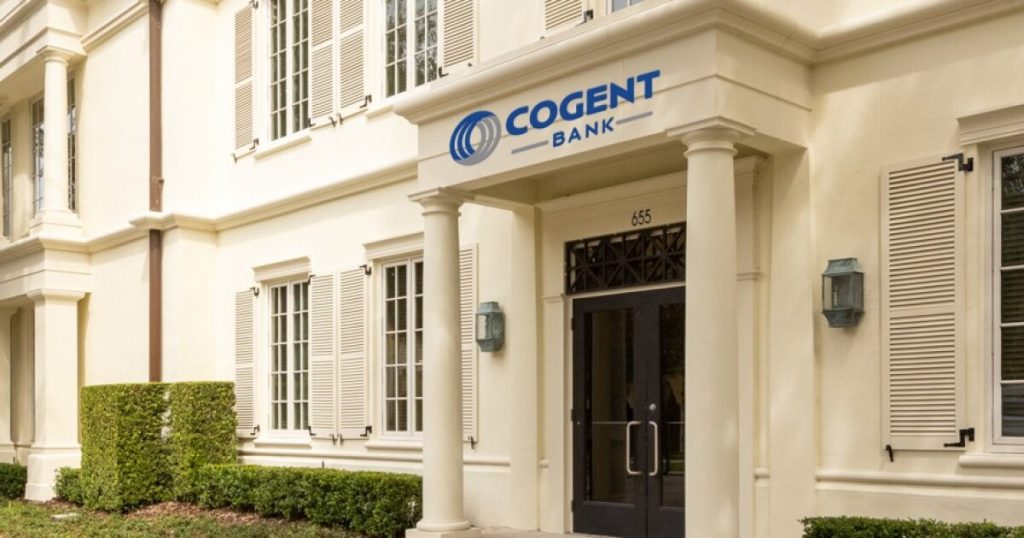Macbeth Studio
Community banks eager to generate growth in the face of stubbornly high interest rates — and the potential for reignited inflation — are focusing on key specialties they believe are relatively safe from economic volatility.
President Donald Trump imposed new tariffs on Chinese imports this year and has threatened steep levies on Canada, Mexico and other countries in part to gain leverage in border-security talks.
While Trump’s vows to shore up porous borders helped him win the presidential election, some bankers worry that tariffs could reignite inflation that reached 9% in the wake of the COVID-19 pandemic. It took more than two years for the Federal Reserve to bring inflation down below 3%, largely by jacking up interest rates.
The Fed cut rates three times in the second half of 2024, but inflation ticked back up to 3% in January — above the Fed’s 2% target — and bankers have since been cautioning that the cost of tariffs could get passed along to consumers and spark fresh inflation flames.
“It’s a very uncertain time,” Brandon Box, Cogent Bank’s market president for southwest Florida, told American Banker. “It’s really just not knowing what the administration is going to do next.”
Still, the
“This is an area we want to be aggressive in,” Box said. Cogent established the business line in Naples, Fort Myers and Orlando. It is now rolling it out across Florida, including Tampa and Jacksonville, as well as parts of Georgia and Alabama.
“Long term, we plan to build this out throughout the Southeast and potentially nationally,” Box said.
The Southeast’s population continues to swell, he said, in part because of the mild climate and favorable tax policies. Florida has no state income tax. As such, homeowners’ associations are expanding, and the pie for banks is growing.
Box also said multiple rounds of bank consolidation in the Southeast over the last several years motivated bankers at acquired lenders to consider their career options. This created opportunities for Cogent to hire experienced association bankers to spearhead its expansion.
Cogent is bullish on homeowners’ associations because they pull in monthly or annual dues from large cohorts of members. That money equals steady deposits for banks. At the same time, association management companies routinely borrow to replace roofs and roads, among other projects. These loans are relatively low-risk because they are backed by the steady member revenue that homeowners’ associations collect.
Cogent’s other niches include aircraft finance, asset-based lending, Department of Agriculture lending and Small Business Administration lending. “Really where we separate ourselves is our specialty lines,” Box said.
He and other bankers said niches are important because they help small lenders differentiate themselves in a highly competitive market. They can become specialists in targeted sectors, developing services that appeal directly to specific types of customers. By extension, banks can become trusted, go-to institutions for specific markets, which can lead to long-term client loyalty.
Banks that specialize also can develop a deeper understanding of the specific risks that are associated with their niches. This can help them to manage risk more effectively and make more informed lending or investment decisions, lowering risk when the economy falters, Box said.
To be sure, no niche is immune to economic tumult and banks try to maintain diversity in their business lines to avoid overconcentration in any one sector.
Several other community lenders went big on SBA loans in recent years.
It trailed only
Another example of a small bank that has thrived by serving a specific niche: the $6 billion-asset
Triumph recently launched a new commercial bank account and payments product for truckers. Its LoadPay product generated an average debit interchange fee of 1.67% in the fourth quarter.
“Our cost of funds for the full year was 1.51%, which is better than almost any banking peer,” Triumph Founder and CEO Aaron Graft said in a recent letter to shareholders.
The company this week also said it would acquire transportation-focused artificial intelligence company Greenscreens.ai to bolster the efficiency of its services.
Triumph acknowledged that the trucking industry can be volatile, based in part on fluctuations in consumer spending. But, over time, the bank said it has proven a durable sector of the economy and a reliable source of deposits and loan demand.
Esquire Bank in Jericho, New York, was founded on a niche banking strategy.
The $1.9 billion-asset bank serves small businesses nationally as well as commercial and retail customers in the New York metropolitan area. At its core, however, are its products and services for lawyers and their firms.
Litigation businesses often report irregular cash flow on a monthly basis, given timing variances tied to court settlements. The ups and downs in cash flow scared off many lenders and historically left law firms underserved, even though many of them are lucrative operations on an annual basis, Esquire President and CEO Andrew Sagliocca told American Banker.
This opened the door for a bank that understands the legal industry to develop underwriting for the sector and identify a steady stream of lending opportunities, Sagliocca said. Lawyers and their firms also are a reliable source of deposits, he said.
“We found a very underserved community,” Sagliocca said.
About two decades after its founding, Esquire Bank has some of the strongest profitability metrics in the banking industry, including a net interest margin that hovers around 6% — double the level of many of its peers. Its loans grew more than 15% in 2024, a year in which community bank lending overall advanced about 1%, according to S&P Global data.
Sagliocca said niches that are relatively removed from the impacts of economic volatility are important for community banks in the face of tariffs and inflation uncertainty.
“Talk about a wildcard,” he said of inflation. “We are in a very delicate time right now.” His advice for other bankers getting into new specialties: “Do it to the best of your ability and live and breathe it every single day.”
